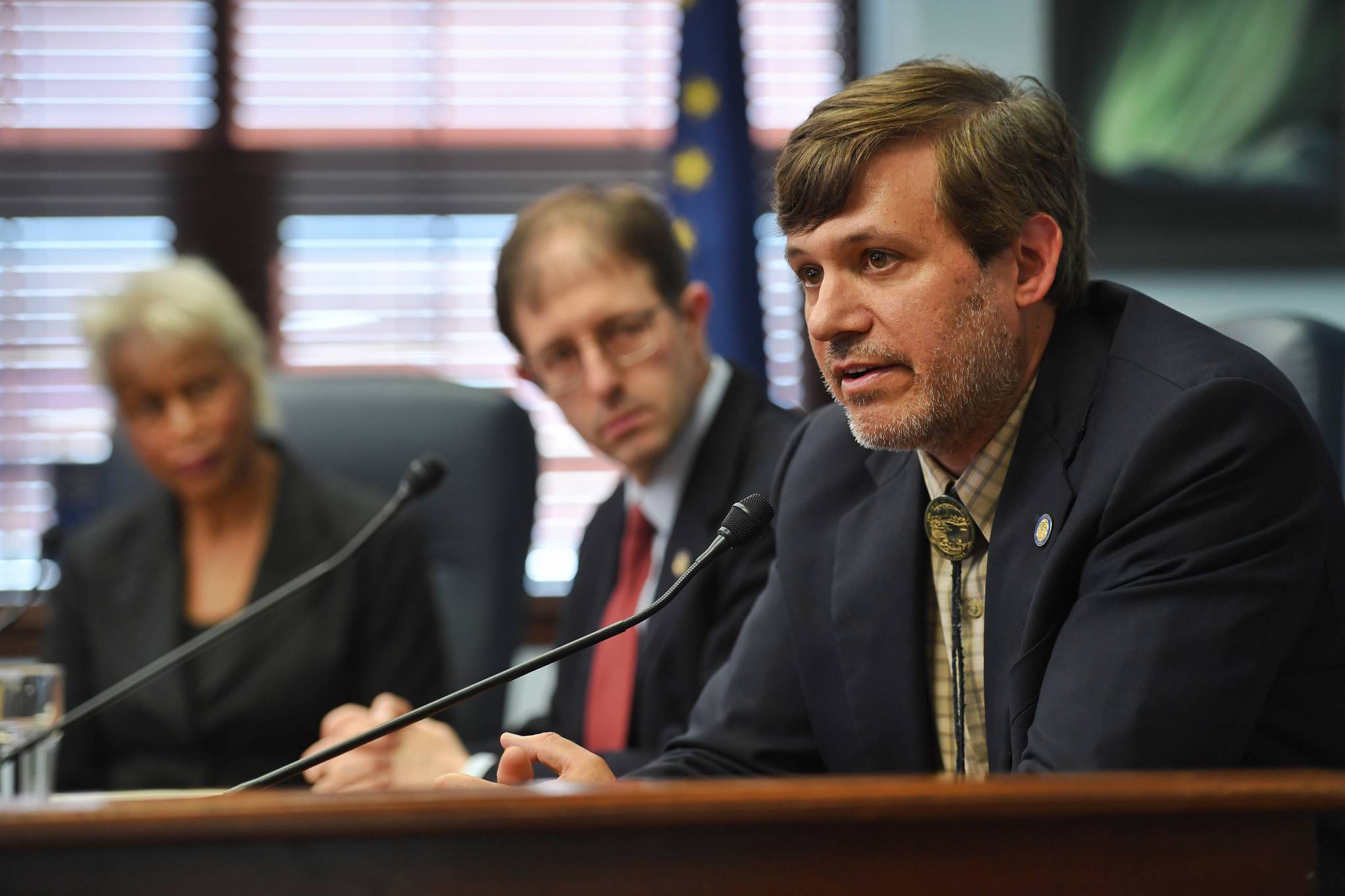Passing Ballot Measure 1, Alaska’s Fair Share Act, is critical to the future of our state.
Alaska’s budget will be unsustainable beginning next year. The state is out of savings to dip into, and with this budget Alaskans have already endured drastic cuts in the last few years. We’ve felt deep cuts to programs and services we need and value, such as funding for K-12 and preschool, public safety, the university, the Alaska Marine Highway System, and Medicaid. Funding for our construction and maintenance projects is inadequate. And of course, your PFD has been raided for five years now to offset the revenue shortfalls. It was only $992 this year, but under the statutory formula the PFD should have been about $3,000.
Even at these severely reduced funding levels, Alaska faces a $903 million deficit next year. The nonpartisan Legislative Finance Division has warned that in these dire fiscal circumstances, absent additional significant budget cuts the Legislature must consider revenue measures.
Alaskans know how staunchly I’ve defended the PFD. You’ve already lost $7,000 to PFD cuts since 2016. Without new revenue, I’m afraid that when the Legislature convenes to address next year’s budget, the PFD will be completely eliminated. I’ll fight hard to prevent that but many legislators do not agree with my views on saving the PFD. Beyond the PFD, the Legislature would still have to consider extreme budget cuts, probably eliminating many programs outright.
It’s no coincidence that after the oil industry lobbied the governor and Legislature to pass Senate Bill 21 in 2013, changing Alaska’s oil tax structure to their own benefit, we almost immediately began experiencing our budget problems, including PFD cuts.
The contentions of Ballot Measure 1’s opponents about jobs and the PFD are easily refuted.
During the 2014 SB21 repeal election the oil industry promised Alaskans more jobs, more revenue, more investment, more production, and a growing PFD if we voted to keep their huge tax cuts. But one month after they won, BP laid off 475 Alaskans, and the industry has since cut another 5,000 jobs — while increasing the percentage of nonresident workers. Under SB21, since 2015 we’ve only made $2.3 billion in production taxes while giving the oil companies over $5 billion in credits and deductions. This doesn’t make sense. Investment at Prudhoe Bay dropped from $877 million in 2014 to $202 million in 2018. And we all remember the promise of one million barrels a day in production. Instead, in 2014 we saw 550,000 barrels a day, which will drop substantially below 500,000 over the next decade.
While your PFD has been slashed, ConocoPhillips has dramatically increased dividends to shareholders and paid off billions in business debts.
Ballot Measure 1 is a citizens’ initiative that would increase Alaska’s share of revenues from the production of our own oil. It would increase taxes on only three North Slope fields — which would remain some of the most profitable fields in the world even once the Fair Share Act passes. It increases the gross minimum production tax for these three fields from 4% to 10%, and it eliminates a special SB21 tax credit for major producers which has cost us over $4.2 billion. It will also require oil companies to disclose financial information that would help Alaska set its tax policy, information they currently keep secret.
Groups opposing Ballot Measure 1 have spent $24 million so far on mass media — mostly in huge donations from ConocoPhillips, ExxonMobil, and Hilcorp, the majorly profitable producers who would see their taxes raised. It’s obvious why they would spend so much money to stop Alaskans from passing Ballot Measure 1—an investment of $24 million against the Fair Share Act could mean they get to keep $1.1 billion instead of paying it to Alaska.
The industry says that oil taxes are too complex for the people to decide, that it should be done by the Legislature. But the Legislature has failed to, which is why the citizens must take action. I’ve filed bills and amendments for years to try to fix our broken oil tax system. Industry lobbyists stopped these bills from getting even one bill hearing.
With our savings gone and huge deficits, Alaska cannot afford to give away our resources. Alaskans should not see their PFD eliminated or pay state sales tax or personal income tax just to pay oil tax credits. This is our oil, we deserve our share. Join me in voting “yes” on Ballot Measure 1.
Sen. Bill Wielechowski was first elected to the Alaska Legislature in 2006 and serves East Anchorage and JBER. He is member of the Senate Finance Committee and previously served as co-chair of the Senate Resources Committee and the Joint Armed Services Committee.
• By Sen. Bill Wielechowski

